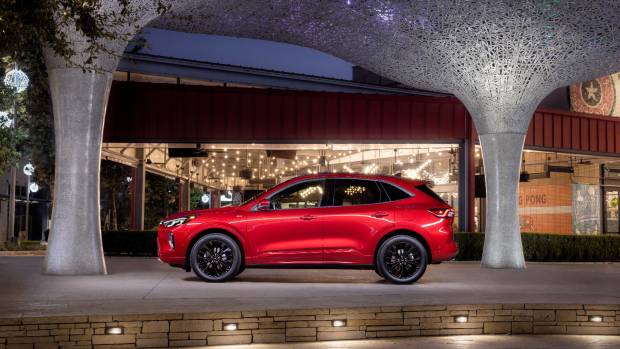
Legacy automobile companies that have been producing internal combustion engine vehicles for decades have been addicted to their gas-powered models as electric vehicles began to make their mark over the past dozen or so years. Those companies have slowly begun to make commitments to transition to all-electric, but some have been changing at a snail's pace.
General Motors (GM) -) rolled out its Chevy Spark EV in 2013 before launching its popular Chevy Bolt EV in 2015. The Spark departed the U.S. market in 2022. Chevy Bolt became the second best-selling electric vehicle behind the Tesla Model S when it was launched in 2017, but in April 2023, GM said it would discontinue the Bolt. But GM's CEO Mary Barra subsequently said in June that it might bring back the Bolt.
DON'T MISS: Tesla luxury rival Volvo unveils relaxing premium electric model
GM, however, might be getting more serious about transitioning to all-electric, as it in March said that it would discontinued the Chevy Camaro gasoline-powered car at the end of the 2024 model year.
Nissan (NSANY) -) had already established the Leaf as a top selling EV after it was launched in 2010, but Tesla's Model S in 2015 knocked the Leaf off the top spot. The Japanese company has said it will phase out the Leaf in the next few years and replace it with a new vehicle by 2026.
Nissan launched its Ariya Crossover/SUV last year hoping it would begin its ramp up of EV production. It also recently unveiled three new models, including its next-generation Leaf crossover coupe that would replace its hatchback model that will be discontinued. It also previewed a performance sedan that could replace its internal combustion engine vehicle Maxima, as well as an electric crossover SUV built on the Ariya dedicated CMF-EV platform
Tesla (TSLA) -) hasn't looked back in its quest for EV dominance as its Model Y sports utility vehicle was the world's best-selling car with about 267,200 vehicles sold in the first three months of the year and continued leading the pack into May, after knocking the previous sales leader Toyota Corolla of its top spot.
Of course, the Corolla is an ICE vehicle, and Toyota (TM) -) has not said whether it will consider transitioning the Corolla to an EV. It's also well known that Toyota has been slow to enter the EV market. It wasn't until April that the Japanese car maker committed to the all-electric vehicle market, saying that it will launch 10 new EVs by 2026.
Stellantis eliminates gas models, adds electric
Stellantis (STLA) -) has been making its move into the EV market and made a huge statement in March 2023 when it said it would discontinue its classic gas-powered V-8 muscle cars, the Dodge Challenger and Charger, as well as its Chrysler 300 big sedan by the end of the year.
The company recently said it would unveil a second new entry-level Fiat-branded electric vehicle in July 2024 that will be priced at about $27,390. The automaker didn't say when the vehicle might be sold in the U.S.
Stellantis previously said it would bring Fiat's best-selling EV, the Fiat 500e, to the U.S. market in 2024. In June the company said it will deliver the new Citroën e-C3 electric car to the U.S. in early 2024 that will be priced at about $27,000.

Ford
Discontinuing Ford ICE models
In March 2023, Ford F said it would discontinue the Transit Connect ICE vehicle in North America at the end of 2023, Automotive News reported, and the company has since added the Escape and Edge ICE vehicles to its list of discontinued vehicles at the end of this year.
Ford's Fiesta already made its exit in Europe this year. With these vehicles disappearing, Ford plans to produce more EVs in its transition to all-electric.
Ford was the No. 2 seller of EVs in the U.S. with three models, F-150, Mustang Mach-E and E-Transit electric van, but was overtaken by GM in the first quarter of 2023. Ford, however, is getting ready to begin production of its new all-electric Explorer SUV in Europe. Ford's CEO Jim Farley has hinted that it might sell the vehicle in the U.S.







